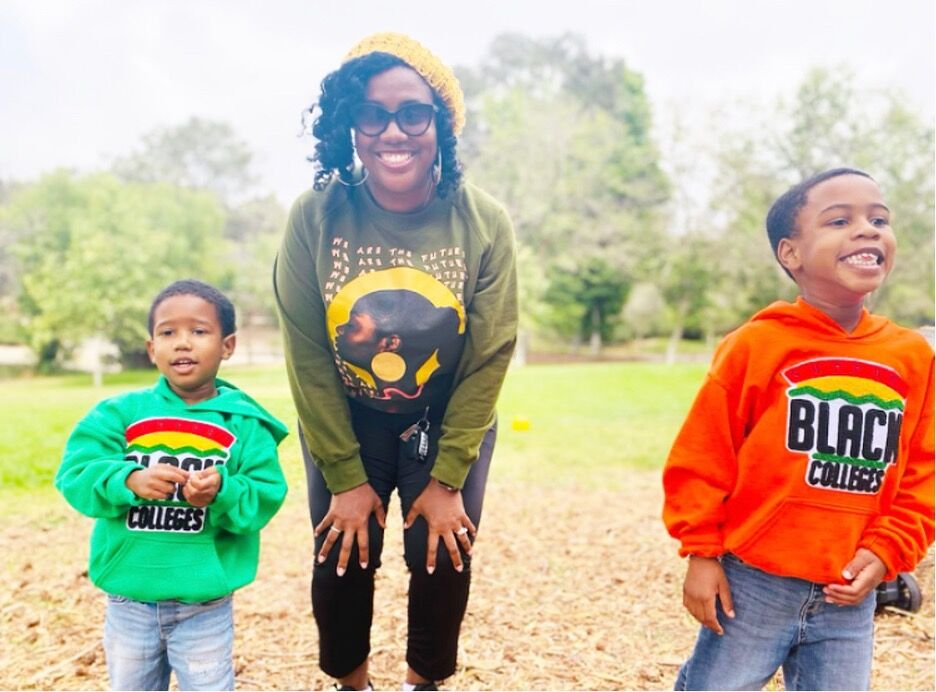
Kia Edwards and family.jpg
Our family is connected to Juneteenth. What an incredible source of pride, especially now.
Juneteenth is the official enslaved African independence day and recently became a federally recognized holiday. The effort—led by my husband’s late uncle, the honorable Al Edwards—has been a long-awaited victory.
Lincoln signed the Emancipation Proclamation in 1865, which announced the freedom of enslaved Africans in the U.S. It wasn’t until two years later, on June 19, that slaves in Galveston, Texas were made aware they had been freed. This is why African-Americans have been acknowledging and honoring it every year by organizing events that spur economic development for African-Americans, through cultural celebrations throughout the community, and just gathering with loved ones. It’s an honoring of those who not only fought for our freedom as African-Americans, but also sacrificed themselves to help build and develop this country.
Texas, where the story of Juneteenth originates in Galveston, was the first state to commemorate the date in 1980 thanks to the efforts of many (including uncle Al, who was then a Texas State Representative). By 2002, eight states followed. Four years later, it was up to 15 states. In 2021—41 years after its inception—Juneteenth was officially written into history and acknowledged as a federal holiday. It’s a crucial recognition.
For those wondering about the controversy surrounding Juneteenth, it’s a complex topic. But a lot of it has to do with the fact that many slave owners refused to follow the new order. Enslaved Africans, though officially freed by the government and now U.S. citizens, would not realize that until years later.
The idea that slavery ended on Juneteenth has been far from the reality of the Black experience in the United States. Inequality and workplace bias extends to areas like the healthcare and justice systems, lack of access to affordable housing and financial inclusivity, and the simple sharing of equal privileges of non-Black people.
But, back to the national holiday. This celebration of Black history and our heritage is long overdue. I’m grateful to have seen our country and specifically my home town of San Diego take an interest in our contributions by challenging businesses, politicians, educators, and influencers to be thoughtful in allyship. We should remember to leave marginalized communities better than how they were found.
Juneteenth is just a single day, but we can honor the spirit of it everyday life. Consider the intersectionality of Black people who also identify as LGBTQIA+ or disabled, who often experience discrimination for multiple aspects of their identity. Have the hard conversations at the dinner table. Denounce injustice and listen to learn from Black people’s stories. Find ways to add value to our community without being performative or financially opportunistic when honoring our culture. Support our efforts without looking for a return.
We have come far. But there is still so much to be done to equally share in the same American dream. The collective dream would really be something to celebrate.
To join in local celebrations and organized economic development events, follow organizations like the County of San Diego Black Chamber of Commerce, African American Association of County Employees (AAACE), the Malcolm X Library, San Diego Urban League, and Black San Diego.
Correction: An earlier version of this story made it sound as if June 19 was the date Lincoln signed the Emancipation Proclamation. It was not. June 19 was the day Union troops freed the last enslaved Black Americans in Texas nearly two years later.

Kia Edwards.jpg
PARTNER CONTENT
About Kia Edwards:
Kia Edwards is founder and CEO of Champion Instructors, a company that solves diverse educational and training needs virtually or in person. She is a humanitarian, activist, EDUpreneur, a wife, and a mother of two young boys.



